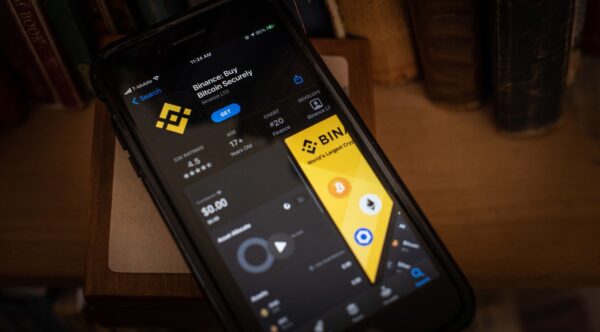Cryptocurrency exchanges are still trying to figure out how to deal with western sanctions against Russia after its invasion of Ukraine.
U.S. measures announced Thursday aim to limit Russia’s ability to do business in dollars and some other international currencies. They include penalties on the nation’s major banks, as well as restrictions on elite citizens and their family members.

That’s led to speculation that crypto — which is touted as an alternative to traditional financial systems — would serve as a tool wealthy Russians could use to circumvent those sanctions.
Digital currencies might help billionaires buy goods and services and invest in assets outside of Russia, all while avoiding banks or institutions that adhere to sanctions and could trace their transactions.
Some crypto exchanges are based in jurisdictions beyond the scope of sanctions, and others don’t require customer identification, making it difficult to impose curbs. What’s more, some firms aren’t entirely sure how to even comply with the restrictions.
“As of today, nothing concrete has been announced yet that would touch crypto,” said Maria Agranovskaya, a lawyer whose office represents crypto exchange Binance in Russia. “The U.K. entered certain limitations for banks for Russian citizens, but it doesn’t really relate to crypto. Maybe it will impact crypto at some point, but not yet.”
Read more: ECB Urges Haste on Crypto Regulation Amid Russia Sanctions
Binance lets anyone buy into a selection of more than 740 coins and crypto-fiat pairs in Russia. It also offers derivatives and non-fungible tokens. It recently appointed a former Bank of Russia executive as its director of government relations in the country.
“We have assembled a dedicated global compliance task force, including world-renowned sanctions experts, and are taking action steps required to fully comply with any sanctions while minimizing impact to our user base,” the exchange said in a statement.
Coinbase, another crypto platform, isn’t available in Russia and the Ukraine. “We don’t have a very specific forecast about how it’s going to impact the crypto economy right now,” said Alesia Haas, chief financial officer of the company. “It’s not a material part of our business, and it’s not going to have an impact on our financials.”
Gemini Trust Co., the cryptocurrency platform run by the Winklevoss brothers, said it’s subject to New York banking compliance standards, and that it doesn’t operate in Ukraine and Russia.
“However, we are conducting a robust review of customer accounts and activity to identify any exposure to sanctioned parties or regions and will take appropriate steps as necessary,” the company said in a statement.
Centralized exchanges that are registered with the Securities and Exchange Commission, with the Financial Crimes Enforcement Network, or with any state authorities as money transmitters would have the responsibility to comply with sanctions, said J. Ashley Ebersole, partner at law firm Bryan Cave Leighton.
“I think it really just depends on what countries’ laws they may be subject to,” said Ebersole. “If there’s a jurisdictional basis for them to be subject to the laws of a country that has sanctions in place, then they could be expected to abide by those.”
Unlike fiat currencies, which need to move through third-party institutions that have the ability to track, freeze or block them, cryptocurrencies can potentially be sent from one person directly to another regardless of any government sanctions or other restrictions. People can use decentralized-finance exchanges, which don’t verify the identity of customers, to conduct transactions even if they are in sanctioned countries.
FinCEN’s 2019 guidance suggests that any peer-to-peer exchanges or decentralized exchanges that function as money transmitters are subject to the Bank Secrecy Act, and therefore must adhere to sanctions, Ebersole said.
Centralized exchanges typically require personal information, especially when crypto is converted to fiat currencies. But such know-your-customer requirements may be omitted on small transactions.
“It’s the responsibility and pretty much the upheld responsibility of exchanges to basically screen and withhold the transactions coming from those addresses,” said Brett Harrison, president of crypto exchange FTX US.
Harrison said that FTX is in close communication with law enforcement agencies across several countries to track and trace questionable accounts.
Centralized exchanges Bitstamp, Bittrex, Coinmama, Bitpanda, Huobi and OkX didn’t immediately return requests for comment. NFT platform OpenSea didn’t immediately respond to a request for comment.
More stories like this are available on bloomberg.com.




